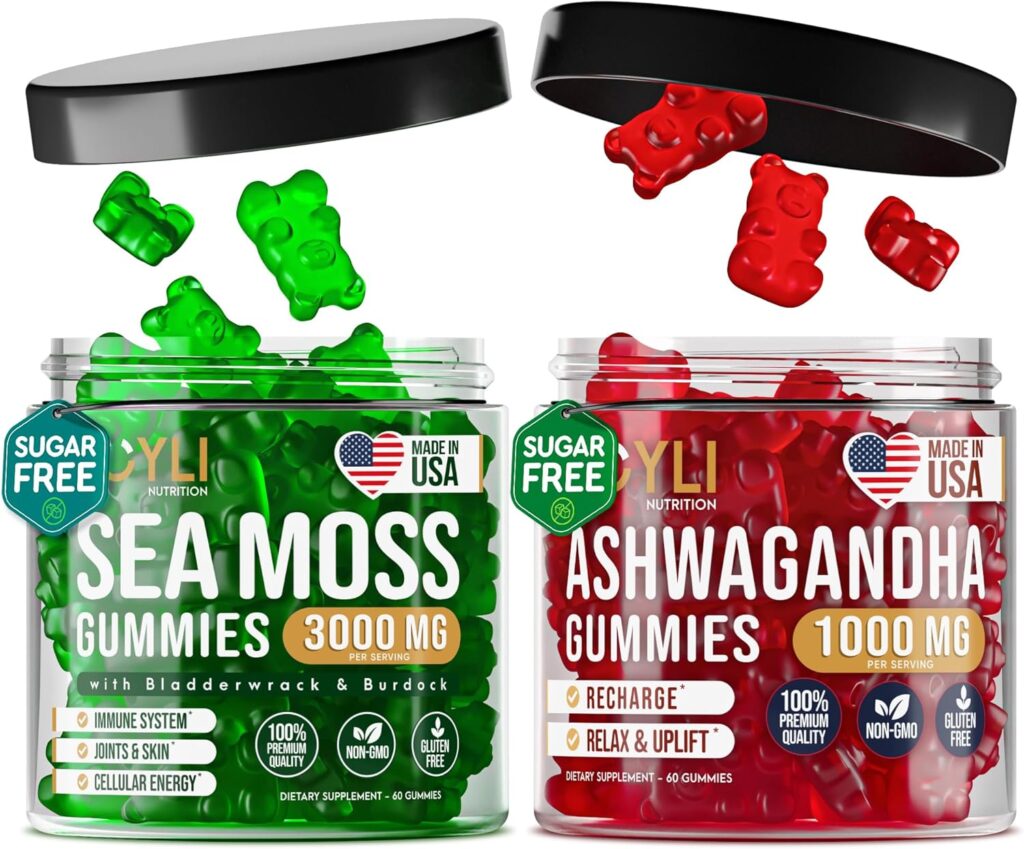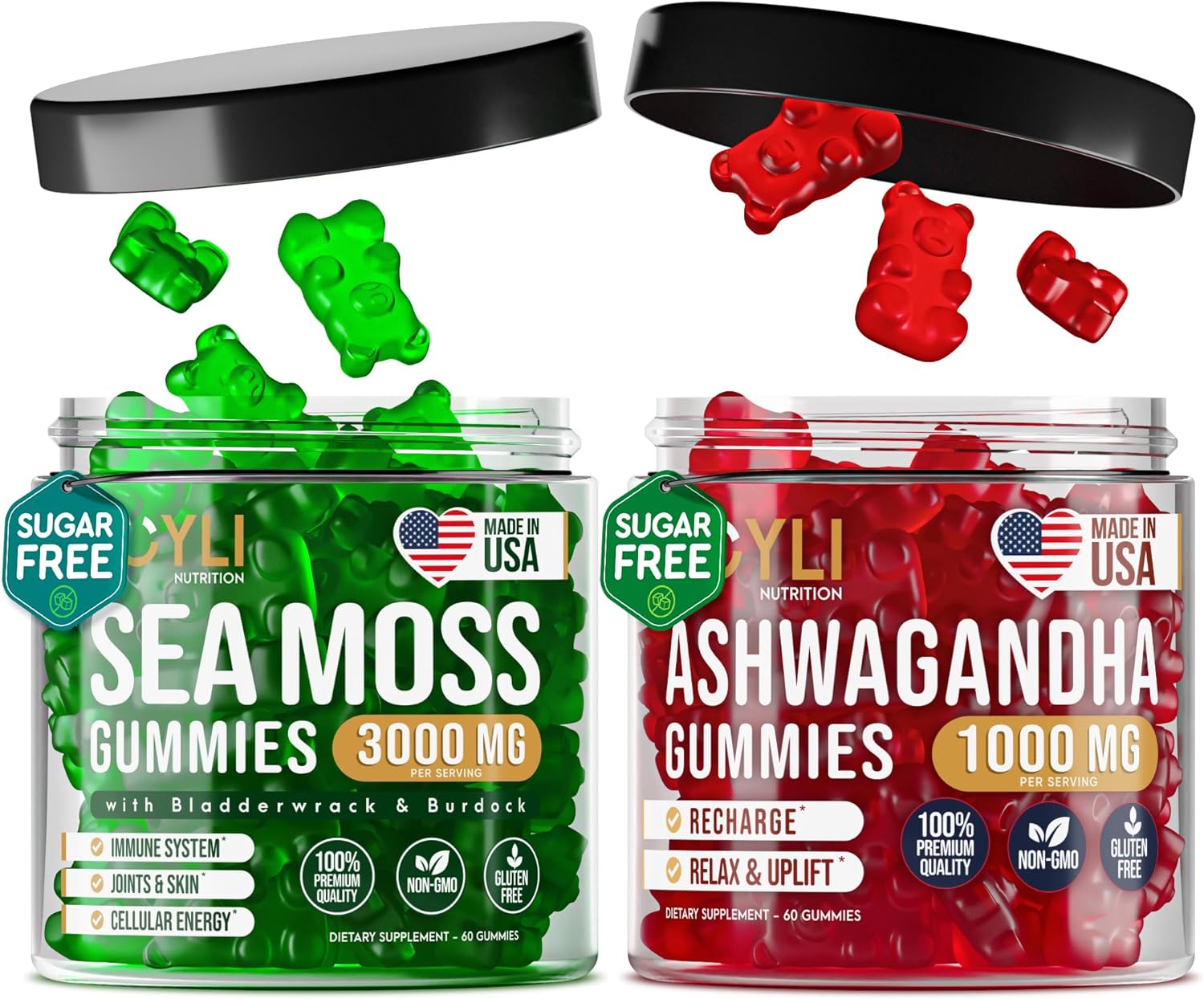
Navigating Supplement Interactions: Which Supplements Should You NOT Take with Irish Sea Moss?
Irish sea moss, a type of red algae harvested from the Atlantic coasts of Europe and North America, has surged in popularity as a dietary supplement. Proponents tout its rich mineral content and potential health benefits, ranging from improved thyroid function to enhanced immunity. However, like any supplement, Irish sea moss can interact with other substances, sometimes in ways that are less than ideal. Understanding these potential interactions is crucial to ensuring your safety and maximizing the effectiveness of both the sea moss and any other supplements you may be taking. This article will delve into which supplements should be avoided or used with caution when consuming Irish sea moss, providing a comprehensive guide to safe supplementation practices.
Understanding Irish Sea Moss and Its Composition
Before diving into specific interactions, it’s essential to understand what Irish sea moss contains. It’s primarily composed of various minerals, including iodine, potassium, calcium, magnesium, iron, and zinc. It also contains vitamins, amino acids, and polysaccharides like carrageenan. The mineral content, particularly iodine, is the main reason why caution is needed when combining Irish sea moss with certain other supplements.
The Iodine Factor
Iodine is critical for thyroid hormone production, which regulates metabolism. While iodine deficiency can lead to hypothyroidism, excessive iodine intake can also cause thyroid dysfunction, including hyperthyroidism and autoimmune thyroiditis. Because Irish sea moss is a significant source of iodine, it’s crucial to monitor your overall iodine intake, especially if you are already taking iodine supplements or consuming a diet high in iodine-rich foods.
Supplements to Avoid or Use with Caution When Taking Irish Sea Moss
Now, let’s explore specific supplements that may interact negatively with Irish sea moss:
Iodine Supplements
This is perhaps the most obvious interaction to avoid. Combining Irish sea moss with standalone iodine supplements can easily lead to excessive iodine intake. Symptoms of iodine excess can include thyroid pain, changes in thyroid hormone levels, and, in severe cases, thyroid storm. It is crucial to monitor your iodine intake from all sources, including iodized salt, multivitamins, and other supplements, to prevent overconsumption when using Irish sea moss. Always consult with a healthcare professional before starting Irish sea moss, especially if you have a history of thyroid issues.
Potassium Supplements
Irish sea moss is naturally rich in potassium. While potassium is an essential electrolyte, excessive intake can lead to hyperkalemia, a condition characterized by elevated potassium levels in the blood. Symptoms of hyperkalemia can include muscle weakness, fatigue, nausea, and, in severe cases, cardiac arrhythmias. If you are already taking potassium supplements, using Irish sea moss concurrently could increase your risk of hyperkalemia. Monitor your potassium intake from all sources, including diet and supplements, and consult with a healthcare provider, especially if you have kidney issues, as the kidneys play a crucial role in regulating potassium levels.
Blood Thinners (Anticoagulants)
Some studies suggest that sea moss may possess mild anticoagulant properties, meaning it could potentially thin the blood. Combining Irish sea moss with blood-thinning medications like warfarin (Coumadin), aspirin, or other antiplatelet drugs could increase the risk of bleeding and bruising. If you are taking blood thinners, it is imperative to discuss the potential risks of using Irish sea moss with your doctor. They may need to monitor your blood clotting time more closely or adjust your medication dosage accordingly. [See also: Benefits of Sea Moss for Skin Health]
Thyroid Medications
As mentioned earlier, Irish sea moss is high in iodine, which directly impacts thyroid hormone production. Taking Irish sea moss alongside thyroid medications like levothyroxine (Synthroid) or liothyronine (Cytomel) can be problematic. The iodine in sea moss could interfere with the effectiveness of these medications or lead to an overcorrection of thyroid hormone levels, causing hyperthyroidism or hypothyroidism. Regular monitoring of thyroid hormone levels is crucial if you are taking thyroid medications and considering adding Irish sea moss to your regimen. Always consult with your endocrinologist or healthcare provider to ensure your thyroid function remains stable.
Supplements Affecting Blood Pressure
Irish sea moss may have a mild effect on lowering blood pressure. Combining it with other supplements known to lower blood pressure, such as magnesium, potassium, or certain herbal remedies, could potentially lead to hypotension (low blood pressure). Symptoms of hypotension can include dizziness, lightheadedness, and fainting. If you are already taking medications or supplements to manage high blood pressure, monitor your blood pressure regularly and consult with your doctor before adding Irish sea moss to your routine. [See also: Sea Moss vs Spirulina]
Iron Supplements
While Irish sea moss contains iron, its bioavailability may be limited due to the presence of other compounds that can inhibit iron absorption. Taking large doses of iron supplements concurrently with Irish sea moss might not be as effective as taking them separately. Additionally, the high mineral content of sea moss could potentially interfere with iron absorption. If you need to take iron supplements, consider taking them at a different time of day than when you consume Irish sea moss to maximize iron absorption.
Calcium Supplements
Similar to iron, the absorption of calcium might be affected by the other minerals present in Irish sea moss. While sea moss does contain calcium, taking high doses of calcium supplements at the same time might not be optimal. It is generally recommended to space out calcium supplementation from other mineral-rich foods or supplements to enhance absorption. [See also: The Role of Sea Moss in Gut Health]
General Recommendations for Safe Supplementation with Irish Sea Moss
To ensure safe supplementation with Irish sea moss, consider the following general recommendations:
- Consult with a Healthcare Provider: Before starting any new supplement, including Irish sea moss, it is crucial to consult with your doctor, especially if you have pre-existing medical conditions or are taking medications.
- Start with a Low Dose: Begin with a small amount of Irish sea moss and gradually increase the dosage as tolerated. This allows you to monitor your body’s response and identify any potential side effects or interactions.
- Monitor Your Iodine Intake: Be mindful of your overall iodine intake from all sources, including diet, supplements, and medications.
- Choose High-Quality Products: Purchase Irish sea moss from reputable sources to ensure purity and quality. Look for products that have been tested for heavy metals and other contaminants.
- Be Aware of Potential Side Effects: Common side effects of Irish sea moss can include digestive upset, skin irritation, and changes in thyroid function. Discontinue use if you experience any adverse reactions.
- Space Out Supplement Intake: To maximize absorption and minimize potential interactions, consider spacing out the intake of Irish sea moss from other supplements, especially minerals like iron and calcium.
The Importance of Individualized Assessment
It’s important to recognize that individual responses to supplements can vary widely. Factors such as age, sex, genetics, medical history, and current medications can all influence how your body reacts to Irish sea moss and other supplements. What works well for one person may not be suitable for another. Therefore, an individualized assessment by a healthcare professional is essential to determine the appropriate dosage and safety of using Irish sea moss in your specific situation.
Conclusion: Informed Choices for Optimal Health
Irish sea moss can be a valuable addition to a healthy lifestyle, offering a range of potential health benefits. However, it is crucial to be aware of potential interactions with other supplements and medications. By understanding the composition of Irish sea moss, particularly its high iodine and mineral content, you can make informed choices about which supplements to avoid or use with caution. Consulting with a healthcare provider and following general recommendations for safe supplementation will help you maximize the benefits of Irish sea moss while minimizing the risk of adverse effects. Remember, informed and cautious consumption is key to harnessing the potential of Irish sea moss for optimal health. Careful consideration of which supplements should you not take with Irish sea moss is paramount for safety. Always prioritize your well-being by making informed decisions and seeking professional guidance when necessary. Prioritizing safety when considering which supplements should you not take with Irish sea moss will ensure a positive experience. Understanding which supplements should you not take with Irish sea moss is essential for avoiding adverse reactions. Knowing which supplements should you not take with Irish sea moss empowers you to make safe choices. Researching which supplements should you not take with Irish sea moss is a responsible step towards better health. By learning which supplements should you not take with Irish sea moss, you can prevent potential complications. Being aware of which supplements should you not take with Irish sea moss ensures a safer supplementation journey. Knowing which supplements should you not take with Irish sea moss is key to maximizing benefits and minimizing risks. Understanding which supplements should you not take with Irish sea moss is a vital aspect of responsible supplementation. Always remember which supplements should you not take with Irish sea moss for a safe and effective experience.

